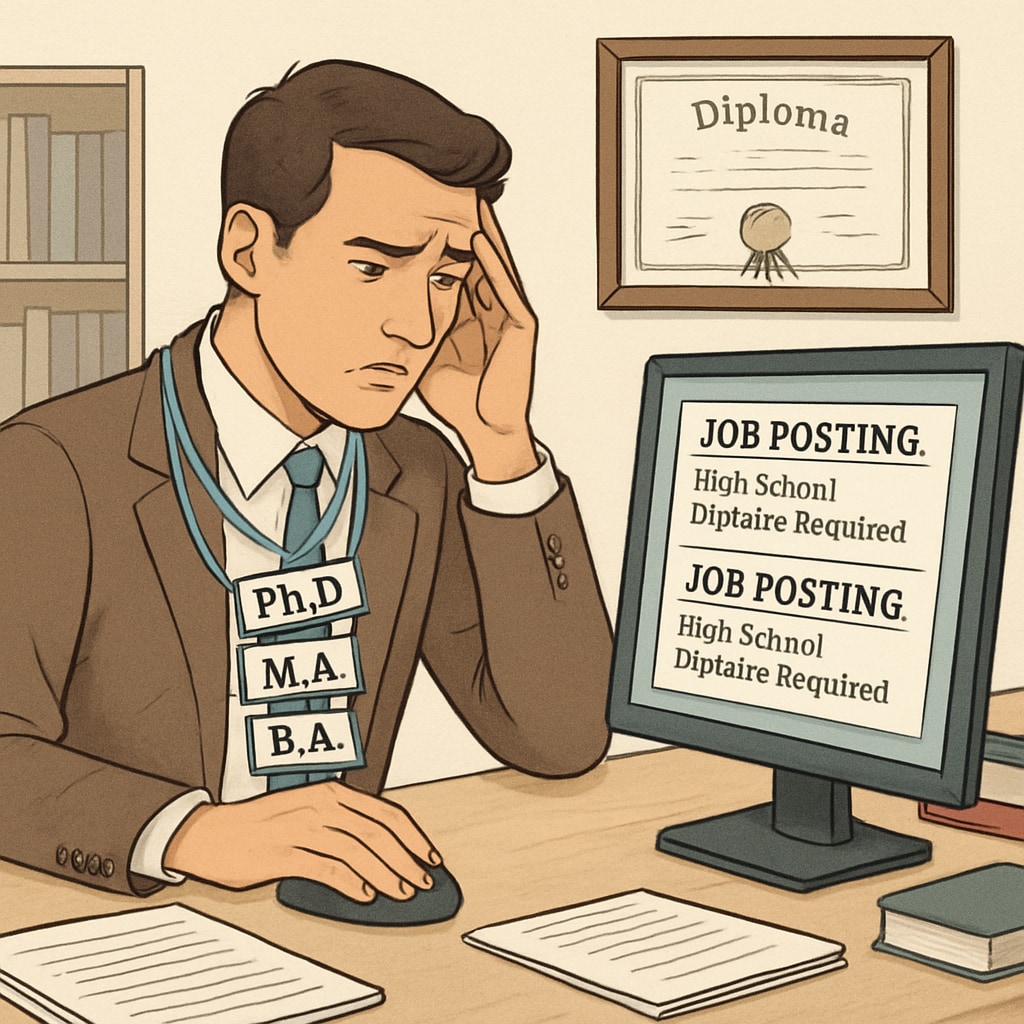In Arizona, a surprising employment paradox has emerged: job qualifications often prioritize a high school diploma over advanced academic achievements such as college degrees. This disconnect between employment requirements and educational attainment raises serious concerns about the fairness and functionality of the state’s qualification system. Despite earning multiple college degrees, many job seekers find themselves excluded from opportunities simply because they lack a high school diploma. This phenomenon highlights a pressing need to reevaluate how education and skills are valued in the labor market.
The Certification Dilemma: Why a High School Diploma Takes Precedence
For many professionals, earning a college degree signifies years of hard work, specialized training, and a commitment to academic excellence. Yet, in Arizona, certain hiring processes still require a high school diploma as a baseline qualification, even for candidates with advanced degrees. This creates a perplexing situation where higher education achievements are undervalued. For example, an individual with a bachelor’s, master’s, or even a doctorate may be disqualified from jobs that demand a high school diploma but do not explicitly recognize higher education credentials.
One reason for this inconsistency lies in outdated hiring practices that rely heavily on rigid, one-size-fits-all qualification frameworks. Employers often use high school diplomas as a default benchmark, assuming they signify basic literacy and numeracy skills. However, this approach ignores the fact that individuals with college degrees far exceed these baseline competencies. As a result, the system inadvertently penalizes those who have pursued higher education but may lack formal documentation at the high school level.

How This Impacts the Workforce and Economy
The implications of this paradox extend beyond individual frustrations. On a broader scale, Arizona’s rigid employment requirements contribute to a talent mismatch in the workforce. Highly educated individuals are either excluded from jobs for which they are overqualified or forced to settle for positions that undervalue their expertise. This misalignment wastes human potential and hampers economic growth, as businesses miss out on skilled professionals who could drive innovation and efficiency.
Moreover, these restrictive qualification standards disproportionately affect non-traditional students and immigrants. Many immigrants possess advanced degrees from their home countries but may not have a U.S. high school diploma. Similarly, non-traditional students who completed GED programs or transitioned directly into college without graduating high school face similar barriers. These groups are often marginalized in the job market despite their qualifications and abilities.

Rethinking Employment Standards for a More Inclusive Future
To address these issues, Arizona must adopt a more inclusive and flexible approach to employment qualifications. One potential solution is to establish equivalency measures that recognize higher education credentials in place of high school diplomas. For instance, if a candidate holds a bachelor’s degree or higher, employers could waive the high school diploma requirement, as the advanced degree inherently demonstrates a higher level of academic achievement.
Additionally, job descriptions should emphasize skills, experience, and competencies rather than rigid educational requirements. Many roles, especially those in technology, healthcare, and creative industries, rely more on practical expertise than formal credentials. By focusing on skills-based hiring, employers can attract diverse talent pools and foster a more equitable hiring process.
Finally, state governments and educational institutions must work together to raise awareness about this issue. Public campaigns and legislative initiatives could help reform outdated hiring practices while promoting alternative pathways to employment, such as vocational training and certification programs.
Conclusion: Bridging the Gap Between Education and Employment
The paradox of Arizona’s employment requirements—where three college degrees can lose to a high school diploma—underscores the urgent need for systemic reform. By reevaluating how qualifications are assessed and valued, Arizona can create a more inclusive and efficient job market. The ultimate goal should be to align education with employment demands, ensuring that all individuals, regardless of their educational background, have a fair shot at opportunity and success.
As the state moves forward, embracing flexible, skills-based hiring practices will not only benefit job seekers but also strengthen Arizona’s economy. It’s time to dismantle outdated barriers and build a workforce that values both education and potential.
Readability guidance: This article uses concise paragraphs, transitions such as “however” and “for example,” and avoids overly complex sentences to enhance readability. Key points are summarized in lists, and active voice is prioritized throughout.


